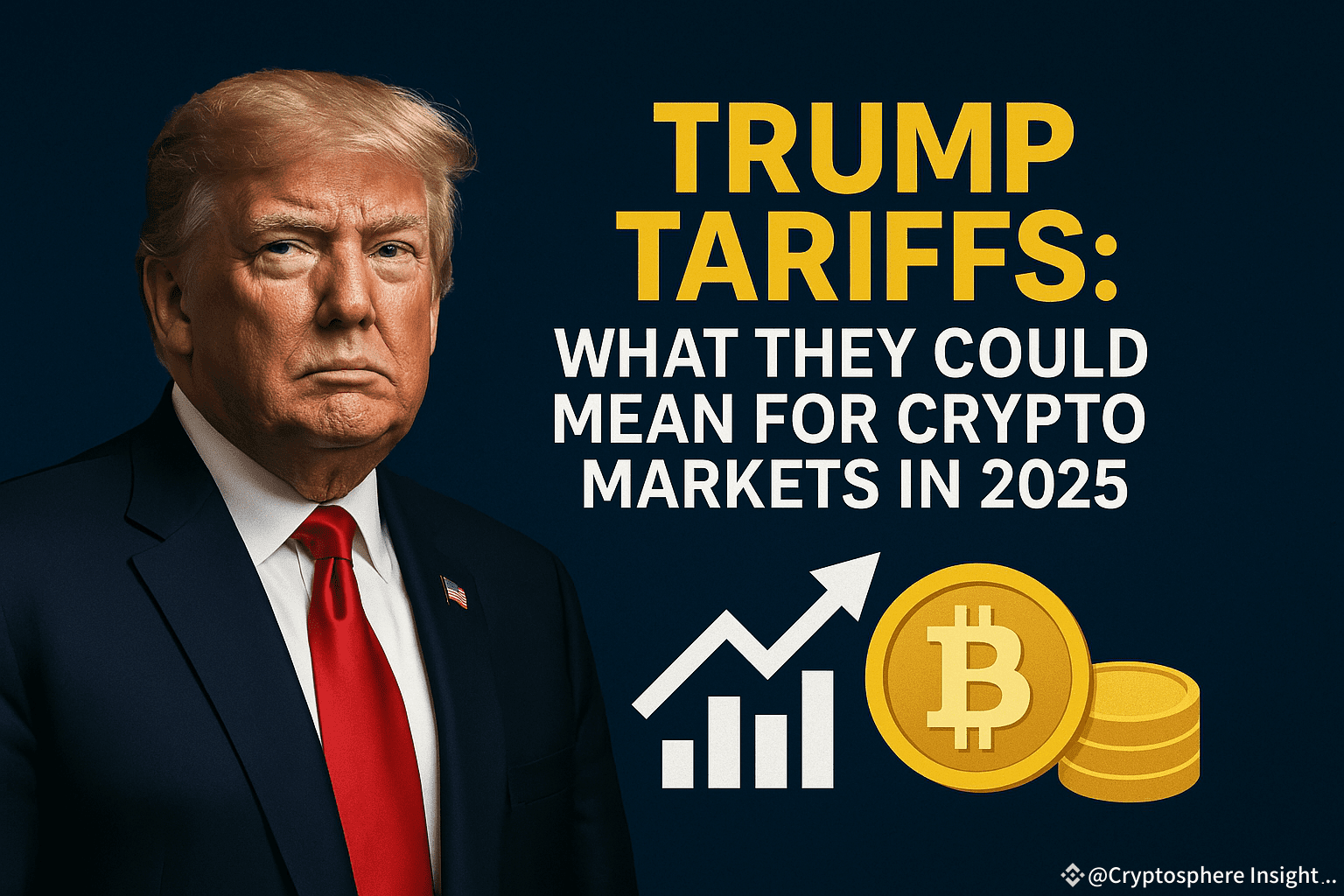
With Donald Trump making headlines again over proposed tariffs on foreign goods, global markets are reacting — and so is crypto. As the former president outlines an aggressive trade policy for a potential second term, including a universal 10% tariff on imports and higher duties on specific nations, investors are reevaluating their strategies. But what does this mean for the digital asset space?
1. Tariffs Could Trigger Inflation – A Bullish Signal for Bitcoin
Tariffs typically raise the cost of imported goods, which can lead to inflationary pressure. As prices rise, fiat currencies tend to weaken — a scenario in which Bitcoin has historically thrived. BTC is often viewed as a hedge against inflation, similar to gold. If tariffs disrupt supply chains and drive up consumer prices, we could see increased capital flow into decentralized assets.
> Key takeaway: Higher tariffs could mean higher inflation, which may boost Bitcoin's appeal as a store of value.
2. Global Trade Uncertainty Could Drive Demand for Borderless Assets
Tariffs introduce friction into international trade and can strain geopolitical relationships. As investors seek global liquidity and freedom from centralized financial systems, crypto becomes an increasingly attractive option.
- Stablecoins like USDT and USDC could see rising demand in countries affected by the tariffs.
- Decentralized finance (DeFi) may benefit as businesses and individuals explore alternative financial ecosystems not tied to traditional banking systems.
> Key takeaway: Trade tensions may push more users toward crypto as a neutral, borderless alternative.
3. Institutional Behavior May Shift
Institutions with global exposure are closely monitoring potential tariff policies. If volatility increases in traditional markets, diversification into digital assets may become more compelling. Additionally, U.S.-based institutions may view crypto as a hedge against political and fiscal uncertainty.
> Key takeaway: More market uncertainty could accelerate institutional crypto adoption.
4. Mining and Tariffs: A Double-Edged Sword
Tariffs on technology and energy imports could impact crypto mining operations, particularly in the U.S., where hardware and infrastructure are often sourced from overseas. This could affect the cost structure of Bitcoin mining and potentially impact the hashrate and miner profitability.
> Key takeaway: Crypto mining margins may narrow if tariffs increase costs on imported equipment.
Conclusion: Crypto as a Strategic Hedge
While Trump’s tariff proposals are still speculative, the potential economic fallout is real. Inflation, trade instability, and market uncertainty often drive interest in decentralized assets. Whether you're a long-term HODLer or an active investor, it's clear: crypto could become an even more valuable hedge in a world of rising protectionism.
Are you ready for a tariff-driven bull run?
Let us know how you're preparing your portfolio in the comments.

